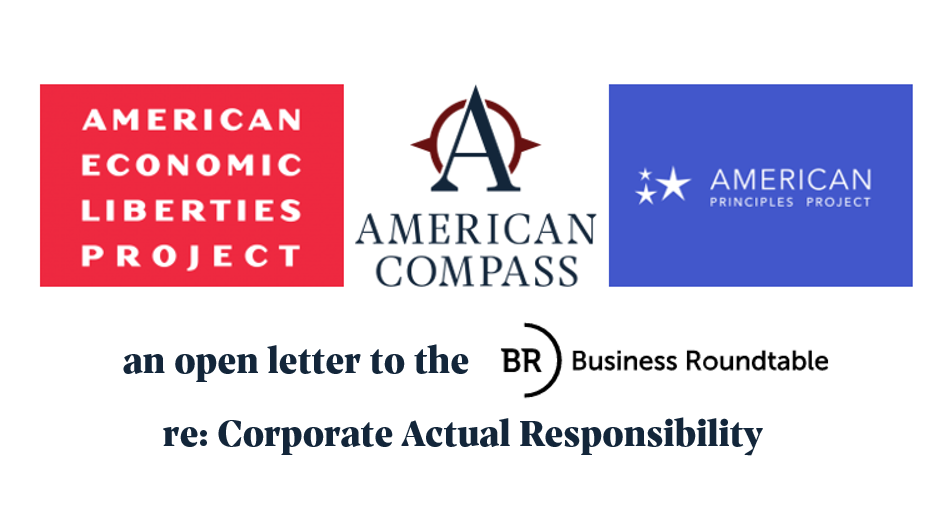
RECOMMENDED READING
Wednesday marks the first anniversary of the Business Roundtable’s vocal renunciation of “shareholder primacy” in a statement that claimed to “redefine the purpose of a corporation.” Like most efforts at “corporate social responsibility,” the initiative has proved long on public relations, short on action, and lacking in effect. Among the 181 CEOs who signed, Harvard Law School’s Lucian Bebchuk and Roberto Tallarita have found only one whose board of directors gave approval. On the organization’s own website, the most recent “Principles of Corporate Governance” still dates from 2016.
The Business Roundtable’s CEO members sought to ensure the public that they could be trusted as benevolent leaders of the economy, but instead they have demonstrated precisely the opposite — that multinational corporations are incapable of fulfilling obligations voluntarily to anyone besides shareholders, and external constraints are needed.
In fairness, the market’s competitive pressures discourage any one firm from hampering short-term profitability for the sake of corporate actual responsibility. But that is precisely where an institution like the Business Roundtable could play a valuable role, were it genuinely committed to addressing interests beyond those of the shareholders who control the firms themselves.
Recommended Reading
Left-Right Coalition Releases Open Letter to Business Roundtable on Corporate Actual Responsibility
After a year of empty promises from CEOs, the groups propose a framework for substantive action.
Open Letter Re: the Business Roundtable’s Commitment to Corporate Actual Responsibility
After a year of empty promises from CEOs, a Left-Right coalition propose a framework for substantive action
Constraining the Corporation
Business leaders have lost contact with the communities and institutions that might hold them accountable, escaped from the oversight and regulation that would channel their activities, and proven themselves shameless in the face of whatever weak standards of decency the culture still attempts to muster.












